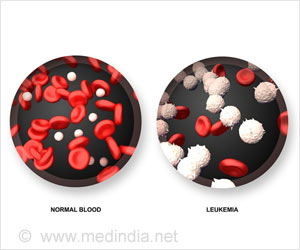Researchers have identified genetic variants linked to pancreatic cancer in Brazilian patients, offering new insights for early detection and personalized treatments.

Pancreatic cancer, despite being relatively uncommon, is a major cause of cancer-related deaths in Brazil due to late diagnosis. This deadly disease has recently been added to the list of cancers tracked by the National Cancer Institute (INCA).
“It’s striking how little data on the disease is available in Brazil and indeed in Latin America as a whole. There are no studies on pancreatic cancer involving Brazilian patients because its incidence is low in this country compared with breast and lung cancer, for example. Yet it’s the type of cancer with the highest mortality rate – and it kills very quickly,” said Lívia Munhoz Rodrigues, a researcher at the São Paulo State Cancer Institute (ICESP) with a PhD in oncology from the University of São Paulo’s Medical School (FM-USP).
Pancreatic cancer is a serious disease with a high mortality rate. It often remains undetected in its early stages, leading to late diagnosis and limited treatment options. The pancreas, a vital organ located behind the stomach, plays crucial roles in digestion and blood sugar regulation. When cancerous cells develop in the pancreas, they can spread rapidly to other organs.
Risk factors for pancreatic cancer include smoking, excessive alcohol consumption, obesity, and family history. Early detection through regular screenings and awareness of symptoms like unexplained abdominal pain, weight loss, and jaundice is crucial for improving outcomes.
Pioneering Study on Pancreatic Cancer in Brazil
Leading a team that included other researchers at ICESP, as well as collaborators at FM-USP’s Department of Legal Medicine, Bioethics, Occupational Medicine and Physical Medicine and Rehabilitation, and the D’Or Research and Education Institute (IDOR), Rodrigues conducted a pioneering study of 192 pancreatic ductal adenocarcinoma patients treated at ICESP between 2018 and 2022 at the expense of the SUS (Sistema Único de Saúde), Brazil’s public health network. Pancreatic ductal adenocarcinoma is the most common type of pancreatic cancer.
The scientists used genomic DNA sequencing to look for alterations to 113 oncogenes – genes that can cause cancer when they undergo mutation or are activated in an abnormal manner – in the shape of pathogenic germline variants (PGVs), which are hereditary mutations.
They found that 6.25% of the study sample (12 patients) had PGVs in genes known to entail a predisposition to pancreatic cancer, while 13% (25 patients) had PGVs in genes associated with pancreatic cancer to a limited extent or not previously associated with the disease.
Advertisement
“We didn’t pre-select the sample based on a family history of cancer, and that’s one of the strengths of our study. Moreover, the patients included were born in almost every region of Brazil, the only exception being the North: 125 were born in the Southeast, 65 in the Northeast, four in the South, and four in the Center-West,” Rodrigues said.
Source-Eurekalert



